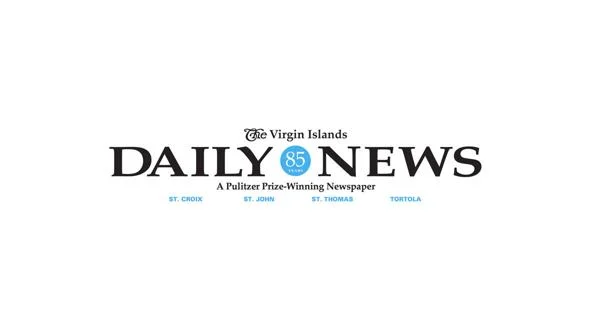By Kehinde Akintola
Copyright tribuneonlineng

…as stakeholders harp on synergy between parliament, media, CSOs on accountability
Director General of Debt Management Office (DMO), Patience Oniha, on Tuesday underscored the need for Nigeria and other West African countries to diversify their economy in the bid to boost revenue, benefit from various initiatives like the African Continental Free Trade Area (AfCFTA), as well as reduce the high debt burden.
Oniha gave the charge during the second day of the ongoing 11th Annual Conference and General Assembly of the West Africa Association of Public Accounts Committees (WAAPAC) with the theme: ‘Strengthening Parliamentary oversight of public debt’, hosted by Nigeria’s House of Representatives’ Committee on Public Accounts, chaired by Rep. Bamidele Salam.
Represented by Deputy Director, Policy Strategy & Risk Management Department, Maryam Omar, the DMO accounting officer, who observed that the debt burden across the region was impacted as a result of the outbreak of COVID-19 in 2020, in addition to high interest rates, the global economic prospect and commodity price shocks.
In the bid to address these challenges associated with public debt, she said: “We need a sound and robust public debt management, which we can lead to information-based decisions, can help policy makers in making information-based decisions.
“We also need to promote fiscal discipline, and there’s also a need for enhanced domestic resources by which we build efforts to boost domestic savings and revenue mobilisation.
“This, because in order to reduce the trend of borrowing, we need to build revenue sources. And there’s also the need for equity. There’s also the need for economic diversification to diversify the economy so that the region can benefit from various initiatives like the African Continental Free Trade Area.
“And the key risk case by public debt management in the region, like the refinancing risk. When you need to refinance the maturity of the debt, you end up doing it at unfavourable conditions, like higher costs, maybe on a shorter tenure. And there’s also the rising debt service burden, which the earlier speaker spoke about it, that we use about 90-something per cent of our revenue in servicing our debt.
“There’s also the exchange rate volatility, especially since we know that in the region, our debt structure, a higher percentage of the region’s debt structure is in external currency and with the exchange rate volatility, it exposes the region to a lot of risk. There’s also the sovereign bank nexus risk, that is, the government-bank relationship.
“The government also borrows heavily from commercial banks, through the issuance of bonds in the market. And there’s a two-way relationship. If the government suffers, it makes the bank encounter losses. Also, if the banks are weak, it affects the government’s financial sources, on which the government depends.
“There’s also the effect of the crowding out of the way by the government, which is dominant. Most of the bank’s assets have a lot of government bonds as part of their assets, so it crowds out the private sector from lending to the real sector from lending to the real sector. And the preventive measures, I would recommend, is to broaden the revenue base, to enhance fiscal transparency and accountability and debt reporting.
“We should also depend on innovation financing, like maybe using PPPs, carbon swaps, instead of depending solely on borrowing as a source of finance.”
In her presentation, Chairman, Nigerian Union of Journalists (NUJ) FCT Council, Comrade Grace Ike observed that effective oversight of public debt is a collective responsibility that demands synergy, transparency, and the political will to act on findings.
She assured that as gatekeepers of information, the Media stands ready to work closely with Supreme Audit Institutions, Civil Society Organisations, and Parliamentary Committees to make public debt management more transparent, accountable, and citizen-centric.
“I see firsthand how transparency, accountability, and public awareness are indispensable pillars underpinning effective governance. Public debt, while a necessary tool for national development, requires vigilant oversight to ensure that it serves the public interest rather than becoming a burden that stifles future generations.
“The role of the Media in Parliamentary oversight: The Media acts as an intermediary between Parliament, government institutions, and the public. We translate complex fiscal data into digestible and actionable information that citizens can understand and engage with. By informing the public about public debt levels, audit findings, and the actions of the government, the media holds the power to amplify demands for accountability and good governance.
“However, the Media cannot perform this role in isolation. SAl’s and CSOs provide invaluable data and expertise that enrich reporting and ensure accuracy, thereby enhancing public confidence.”
While speaking, Nigeria’s Auditor General for the Federation, Mr. Shaakaa Chira, who harped on the importance of strengthening oversight through collaboration with civil society and the media, observed that the country’s public debts, as at 31st December 2024, are not been audited yet.
According to him, “the public debts of the Federation stood at 143.5 trillion, and out of it, the external component of the public debt, 68.8 trillion, and the domestic debt component amounted to 74.6 trillion.”
He observed that the oAuGF reports directly to the Public Accounts Committees of the National Assembly with a view to verifying whether the borrowed funds deliver tangible value for citizens through performance audits; offering technical advice and analysis to empower legislative scrutiny; and providing a comprehensive audit report, including a dedicated chapter on debt management.
“We hire citizen trusts by reporting misuse, misreporting or mismanagement of debts. Strengthening public financial management, we recommend reforms to improve debt recording, reporting and monitoring. Capacity building: we develop in-house expertise to audit complex audit instruments, because we thought professionals who have in-depth knowledge of all public debts, are audited, will not be able to get exactly what it’s all about.”
ALSO READ TOP STORIES FROM NIGERIAN TRIBUNE



